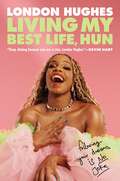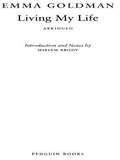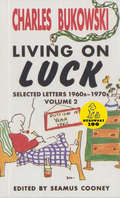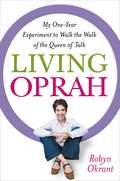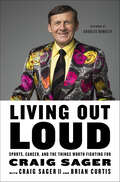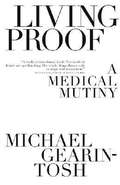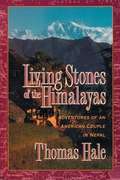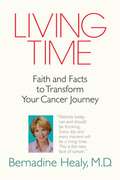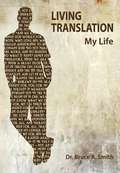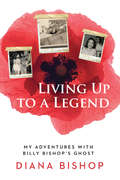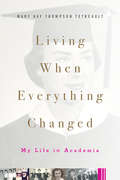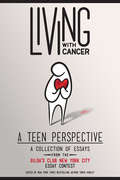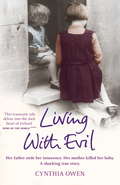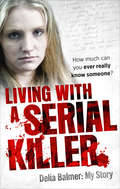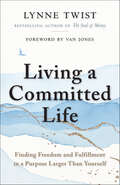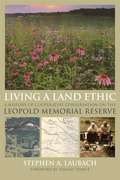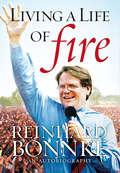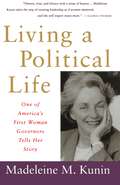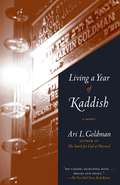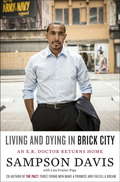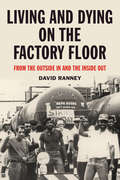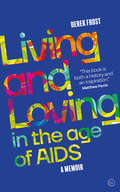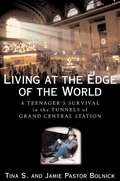- Table View
- List View
Living My Best Life, Hun: Following Your Dreams Is No Joke
by London HughesFrom stand-up comedian, actress, and host of The Netflix Afterparty, London Hughes, comes an uplifting and raucously funny memoir to show you how to ditch the self-loathing, start the self-loving, and engage with your inner winner. London Hughes has come a long way from secretly writing Frasier fan fiction alone in her bedroom. Between her breakout Netflix comedy special, To Catch a D*ck, her dating podcast &“London, Actually,&” and her award-winning TV performances, London the South Londoner has taken the entertainment world by storm. And now, in this sassy, brash, fearless, and funny memoir, London is ready to inspire women of all ages and races with her story—because London is absolutely the best person in the whole wide world to take you on a wild journey of self-discovery. As she herself puts it: &“I&’ve always been funny. I&’ve always been cute. I&’ve always been confident. I was born to do this shit.&” All her life, London longed to be a badass—an awesome bullet-proof woman who nobody could mess with. At a young age, she made sure she was ready to become a star, developing her own living-room popstar training regimen to prepare for her future life. But London also had her fair share of disastrous experiences in terms of friendships, relationships, and career choices. Each of the fiascos in London&’s life has, with hindsight, proved to be a formative life lesson, and helped her grow into the fearless person she is today. You'll definitely be grateful these setbacks happened to her and not you, but you'll also learn that however bad things get, you can always build your self-worth, think long-term, and emerge triumphant, no matter what the world throws at you. From starring in a school sex education video called &“Swings and Roundabouts&” to being gushed over by a fan while standing next to the Renee Zellweger, London leaves no stone unturned in Living My Best Life, Hun. It took London some time to find her voice and her people, but now that she has, she's mentally high-fiving her 14-year-old self every day.
Living My Life
by Emma GoldmanAnarchist, journalist, drama critic, advocate of birth control and free love, Emma Goldman was the most famous—and notorious—woman in the early twentieth century. This abridged version of her two-volume autobiography takes her from her birthplace in czarist Russia to the socialist enclaves of Manhattan’s Lower East Side. Against a dramatic backdrop of political argument, show trials, imprisonment, and tempestuous romances, Goldman chronicles the epoch that she helped shape: the reform movements of the Progressive Era, the early years of and later disillusionment with Lenin’s Bolshevik experiment, and more. Sounding a call still heard today, Living My Life is a riveting account of political ferment and ideological turbulence. First time in Penguin Classics Condensed to half the length of Goldman's original work, this edition is accessible to those interested in the activist and her extraordinary era .
Living On Luck
by Charles BukowskiLiving on Luck is a collection of letters from the 1960s mixed in with poems and drawings. The ever clever Charles Bukowski fills the pages with his rough exterior and juicy center.
Living Oprah: One Woman, One Year, All Oprah
by Robyn OkrantWhat happens when a thirty-five-year-old average American woman spends one year following every piece of Oprah Winfrey's advice on how to "live your best life"? Robyn Okrant devoted 2008 to adhering to all of Oprah's suggestions and guidance delivered via her television show, her Web site, and her magazine. LIVING OPRAH is a month-by-month account of that year. Some of the challenges included enrollment in Oprah's Best Life Challenge for physical fitness and weight control, living vegan, and participating in Oprah's Book Club. After 365 days of LIVING OPRAH, Okrant reflects on the rewards won and lessons learned as well as the tolls exacted by the experiment.
Living Out Loud: Sports, Cancer, and the Things Worth Fighting For
by Brian Curtis Craig Sager Craig Sager IIThe beloved sportscaster recounts how he maintained a positive outlook on life in the face of battling leukemia in this moving and inspiring memoir.A New York Times Bestseller“Time is something that cannot be bought, it cannot be wagered with God, and it is not in endless supply. Time is simply how you live your life.” —Craig SagerThanks to an eccentric wardrobe filled with brightly colored suits and a love of sports that knows no bounds, Craig Sager is one of the most beloved and recognizable broadcasters on television. So when the sports world learned that he was diagnosed with acute myeloid leukemia (AML) there was an outpouring of love and support from everyone who was inspired by his colorful life and his fearless decision to continue doing the job he loved—despite being told that he would have only three-to-six months to live. Sager has undergone three stem cell transplants—with his son as the donor for two of them—and more than twenty chemotherapy cycles since his diagnosis.In Living Out Loud, Craig Sager shares incredible stories from his remarkable career and chronicles his heroic battle. Whether he’s sprinting across Wrigley Field mid-game as a college student with cops in pursuit, chasing down Hank Aaron on the field for an interview after Aaron broke Babe Ruth’s home run record, running with the bulls in Pamplona, or hunkering down to face the daunting physical challenges of fighting leukemia, Craig Sager is always ready to defy expectations, embrace life, and live it to the fullest.Including a foreword by Charles Barkley and with unique insight from his son Craig Sager II, this entertaining, honest, and introspective account of a life lived in sports reveals the enduring lessons Sager has learned throughout his career and reminds you that no matter what life throws at you, to always look at the bright side.
Living Proof: A Medical Mutiny
by Michael Gearin-ToshI was told I had cancer and that I must expect to die soon. Almost eight years later I still do my job and enjoy life. I have not had conventional treatment. Did my cancer simply disappear? Did I do nothing? Far from it. A number of things happened, some by accident, most by design. Michael Gearin-Tosh is diagnosed with cancer at the age of fifty-four. The doctors urge immediate treatment. He refuses. Intuitively, not on the basis of reason. But as the days pass, Gearin-Tosh falls back on his habits as a scholar of literature. He begins to probe the experts' words and the meaning behind medical phrases. He tries to relate what each doctor says -- and does not say -- to the doctor's own temperament. And the more questions he asks, the more adamant his refusal to be hurried to treatment. The delay is a high-risk gamble. He listens to much advice, especially that of three women friends, each with a different point of view, one a doctor. They challenge him. They challenge medical advice. They challenge one another. On no occasion do they speak with one voice. He also turns to unexpected guides within his own memory and in the authors he loves, from Shakespeare and Chekhov to Jean Renoir, Arthur Miller, and Václav Havel. In the end, he chooses not to have chemotherapy but to combat his cancer largely through nutrition, vitamin supplements, an ancient Chinese breathing exercise with imaginative visualizations, and acupuncture. No how-to book or prescriptive health guide, Living Proof is a celebration of human existence and friendship, a story of how a man steers through conflicting advice, between depression and seemingly inescapable rationalism, between the medicine he rejects and the doctors he honors. Clear-eyed and unflinching, Gearin-Tosh even includes his own medical history, "The Case of the . 005% Survivor"; explores general questions about cancer; and examines the role of individual temperament on medical attitudes, the choice of treatments, and, of course, survival.
Living Proof: An Autobiography
by Hank Williams Jr. Michael BaneAlmost singlehandedly Hank Williams, Sr., changed country and western music into a national mania. When he died in 1953, he became a mythic figure. From the day his famous father died, Hank Junior was pushed to fill his father's shoes. By the time he was seven, he had been tutored by Johnny Cash, Jerry Lee Lewis and Brenda Lee. At the ripe old age of eight, he played his first show, singing his daddy's songs and telling his daddy's stories, and even then it was apparent he had inherited his father's musical genius. His rise to fame was spectacular: at eleven he premiered at the Grand Ole Opry and at fourteen was a hit on the "Ed Sullivan Show." At nineteen Hank Junior was perched atop show business. But success took its toll. The demons of drugs and booze that had destroyed his father began to claim the son. Two marriages failed. Hostile audiences came to watch him forget lyrics or drop his guitar. The pressures were so enormous Hank Junior wanted to die. Then in 1975 Hank's death wish was almost granted when he slid five hundred feet down a mountain in the Rockies, landing head first on a boulder. Awaiting certain death in the snow, his face split apart, Hank had a powerful revelation--he wanted desperately to live, and amazingly he did. With a sense of wonder, Hank takes his survival as a sign he isn't to end up like his father. Now twenty-nine, Hank just released his twenty-fourth album and has a full concert schedule. With his career stronger than ever, this great singer movingly conveys his extraordinary life and his tortured journey to escape from under the dark shadow of his father's ill-fated life.
Living Stones of the Himalayas: Adventures of an American Couple in Nepal
by Thomas HaleSince 1970, the team of Thomas Hale and his wife, Cynthia, have struggled to serve God as medical doctors in the remote storybook kingdom of Nepal. In the process they have experienced both the hardships and the blessings of bringing Western medicine to people who distrust -- even fear -- ideas differing from their own. n the same process, by their selfless love and caring, they have gained the affection and trust of their Nepali patients and neighbors. In this true story, the faith and humility of doctors Tom and Cynthia Hale are matched by the beguiling personality and character of the Nepalese people, the majority of whom are subsistence farmers who share much in common with the poor of all developing countries. Living Stones of the Himalayas, like its predecessors Don't Let the Goats Eat the Loquat Trees and On the Far Side of Liglig Mountain, is a graphic portrait of the human condition and the growing pains of the unique and intriguing land of Nepal with its astonishing beauty that exists side by side with: - faith and superstition - sickness and death - ancient traditions and twentieth-century innovations - courage and joie de vivre Living Stones of the Himalayas is a fascinating account of everyday and sometimes incredible experiences mingled with humor, understanding, and love for humanity. Reading it will transport you to one of the most enchanting lands away -- first class.
Living Time: Faith and Facts to Transform Your Cancer Journey
by Bernadine HealyLiving Time is at once a personal odyssey, an intimate doctor-patient communication, and a prescriptive guide for patients and their families. Writing with wit and humility, Dr. Bernadine Healy shares the hard-won insights that transformed her own struggle with a deadly cancer more than seven years ago, affirming her identity as patient and doctor with the many who share this journey.
Living Translation
by Bruce A. SmithThis book opens a window to a story of God's leading and faithfulness to a humble and transparent man, deeply committed to Christ and his family. Bruce has been given the gift of challenging God's people to reach beyond their comfort zones into greater possibilities and make their lives count for eternity. "The skill Bruce Smith applies as a precedent-setting Christian leader is part of what helps Wycliffe Associates reach the hard-won goals described in this remarkable book. Seeing how a man of God keeps executive prowess tethered to a God-given vision inspires us even more. Learn how Bruce and his carefully chosen team--with frugality, grit and biblical compassion--enable Bible translators to offer the Word of God to more and more of the earth's remotest peoples."
Living Up to a Legend: My Adventures with Billy Bishop's Ghost
by Diana BishopDiana Bishop recounts growing up in the shadow of her famous grandfather, Canadian First World War flying ace Billy Bishop. As a child, Diana Bishop showed up one day at school with a brown paper bag. Inside was a large breastplate of some of the most precious war medals on the planet, including the Victoria Cross. They belonged to Canada’s most celebrated First World War pilot, Billy Bishop, and until her family donated them to the Canadian War Museum, they had been kept in her father’s underwear drawer. That day at school was the first time Diana realized she was not growing up in an ordinary family. Now, after more than two decades in Canadian media, Diana Bishop looks back on her grandfather’s legacy and its profound influence over her life, and also her father’s — the only son of Billy Bishop, who had so much to live up to. Living Up to a Legend is a unique memoir that covers Billy Bishop’s legacy through the eyes of one of the people who it affected the most.
Living When Everything Changed: My Life in Academia
by Mary Kay TetreaultEntering the academy at the dawn of the women’s rights movement in the late 1960s and early 1970s, the first generation of feminist academics had a difficult journey. With few female role models, they had to forge their own path and prove that feminist scholarship was a legitimate enterprise. Later, when many of these scholars moved into administrative positions, hoping to reform the university system from within, they encountered entrenched hierarchies, bureaucracies, and old boys’ networks that made it difficult to put their feminist principles into practice. In this compelling memoir, Mary Kay Thompson Tetreault describes how a Catholic girl from small-town Nebraska discovered her callings as a feminist, as an academic, and as a university administrator. She recounts her experiences at three very different schools: the small progressive Lewis & Clark College, the massive regional university of Cal State Fullerton, and the rapidly expanding Portland State University. Reflecting on both her accomplishments and challenges, she considers just how much second-wave feminism has transformed academia and how much reform is still needed. With remarkable candor and compassion, Thompson Tetreault provides an intimate personal look at an era when both women’s lives and university culture changed for good. The Acknowledgments were inadvertently left out of the first printing of this book. We apologize for the oversight, and offer them here instead. Future printings will include this information. (https://d3tto5i5w9ogdd.cloudfront.net/wp-content/uploads/2019/08/29185420/Thompson-Tetreault-Acknowledgments.pdf)
Living With Cancer
by Tonya HurleyLiving with Cancer presents the winners of the Gilda's Club® New York City teen essay contest, which put to its young writers the challenge of expressing what it feels like to LIVE with cancer; not to struggle with cancer, or even understand it, but simply to record the honest experience of living with it, alongside it. These essays give voice to teens whose lives and the lives of those they love have been affected by cancer, expressing their experiences with bravery, humor, and above all, honesty. These diverse and inspiring accounts will impress upon readers the openness and emotional maturity of their teen authors, who have found a place in both Gilda's Club® and within these pages to let go, to be themselves, and to never face cancer alone.Tonya Hurley is a New York Times and international bestselling author of the ghostgirl series and The Blessed trilogy. Her books are published in nearly 30 countries and in more than 20 languages. Ms. Hurley has worked in virtually every aspect of teen entertainment: creating, writing, and producing two hit TV series; writing and directing several acclaimed independent films, music videos and videogames. She is a contributor to the Huffington Post, an active member of the Writer's Guild of America, a member of the Horror Writers Association and has been involved in the Gilda's Club® NYC Teen Essay Contest since its inception. Gilda's Club® New York City is named after Gilda Radner, a brilliant comedian and one of the original cast members of Saturday Night Live. In 1986, she was diagnosed with ovarian cancer and died at the age of 42. During her illness, Gilda was part of a cancer support community which inspired her dream that anyone touched by cancer would receive the kind of emotional and social support she found there. In June, 1995 Gilda's Club® New York City opened its signature Red Door-her legacy to everyone living with cancer. Today, Gilda's Club® is a place where anyone touched by cancer...women, men, teens, and children, along with their families and friends can find FREE cancer support. The social and emotional support that is available to all members includes support and networking groups, educational lectures, workshops, and social activities-all in a beautiful, homelike setting in their West Village clubhouse and satellite locations throughout New York City. Thanks to the generous support of friends, corporations and foundations, we have served over 7,200 members in Manhattan, Brooklyn, Queens and the Bronx since we opened our signature Red Door in 1995. Visit us at http://www.gildasclubnyc.org/.
Living With Evil
by Cynthia OwenCynthia Owen grew up in Ireland, went to the local convent school, said her prayers and took her first communion with all the other girls in her class. But behind the façade of respectability lurked a hideous reality.Cynthia was just eight years old when she was sexually abused by her father amongst others. Shortly before her eleventh birthday she was made pregnant and, minutes after giving birth to the baby, Cynthia watched in horror as her own mother murdered the tiny infant, named Noleen, by repeatedly stabbing her with a knitting needle. Cynthia’s mother then wrapped the baby girl in a plastic bag, dumped her in an alleyway and made her daughter go back to school and pretend nothing had ever happened.After enduring many more years of rape and violence, Cynthia came forward and reported her abuse and Noleen’s death.Finally, in 2007, after a fifteen-year legal fight to have her baby girl formally identified, the jury at the ‘Dun Laoghaire Baby’ inquest declared that the baby found dead in an alleyway thirty-four years previously was Noleen Murphy, the daughter of Cynthia Owen.Cynthia’s is a horrific story of brutality and loss, but ultimately, it is an account of love, immense bravery and her fight for justice in Noleen’s name.
Living With a Serial Killer
by Delia BalmerWhen Delia Balmer entered into a relationship with the attentive John Sweeney, she had no idea he was a serial killer.At first he was caring but over the course of their relationship he became violent and controlling. On more than one occasion he held Delia hostage and tortured her. Chillingly, he also confessed to the murder of his previous girlfriend. After one serious assault, Sweeney was released on bail, and left her in the utmost fear knowing that he would return to finish her off. After a final frenzied attack leaving Delia on the brink of death, Sweeney went on the run. Astonishingly, it would take the police six years to capture and convict Sweeney of multiple murders.This is her compelling memoir.
Living a Committed Life: Finding Freedom and Fulfillment in a Purpose Larger Than Yourself
by Lynn TwistWhat would life be like if you committed to something larger than yourself? Find out in the newest book from global transformation thought leader Lynne Twist. How does one person make a difference in the world? People constantly seek to discover meaning in their lives, but as humans take on the challenges facing us in this decade and beyond, we're searching for it now more than ever. Living a Committed Life demonstrates the power of dedication that goes beyond the self and teaches how to live a committed life that enables you to draw on resources and capacities from your most authentic self. In five parts, Lynne Twist shows how to make and keep commitments, engage in individual and collective action, and discover ways to connect and collaborate to make a difference. By sharing stories and perspectives from her life, Twist reveals her unique experience as a thought leader and activist in multiple causes, from ending world hunger and protecting the Amazon rainforest to empowering women's leadership. The book presents the guiding principles that have enabled her own success and that turn inspiration into action for everyone.
Living a Land Ethic
by Stephen A. LaubachIn 1935, in the midst of relentless drought, Aldo Leopold purchased an abandoned farm along the Wisconsin River near Baraboo, Wisconsin. An old chicken coop, later to become famous as the Leopold "Shack," was the property's only intact structure. The Leopold family embraced this spent farm as a new kind of laboratory-a place to experiment on restoring health to an ailing piece of land. Here, Leopold found inspiration for writing "A Sand County Almanac," his influential book of essays on conservation and ethics. "Living a Land Ethic" chronicles the formation of the 1,600-acre reserve surrounding the Shack. When the Leopold Memorial Reserve was founded in 1967, five neighboring families signed an innovative agreement to jointly care for their properties in ways that honored Aldo Leopold's legacy. In the ensuing years, the Reserve's Coleman and Leopold families formed the Sand County Foundation and the Aldo Leopold Foundation. These organizations have been the primary stewards of the Reserve, carrying on a tradition of ecological restoration and cooperative conservation. Author Stephen A. Laubach draws from the archives of both foundations, including articles of incorporation, correspondence, photos, managers' notes, and interviews to share with readers the Reserve's untold history and its important place in the American conservation movement. "
Living a Life of Fire Autobiography
by Reinhard BonnkeLiving a Life of Fire, the new autobiography from Evangelist Reinhard Bonnke is an amazing life story of one of the world's most successful promoters of the Christian message. This book isn't just the facts about a preacher's life - it delivers a superlative read that will captivate Christians and non-Christians alike.
Living a Political Life
by Madeleine May KuninThe first time Madeleine M. Kunin ran for office it was because she thought there ought to be more women in politics. In time she fulfilled that belief by becoming the first woman governor of Vermont. Throughout her career, Kunin found that the rules for women politicians were different: she would not be forgiven (nor would she forgive herself) for neglecting her family. She could not afford to display emotion at the wrong times lest she be thought "weak." And she would have to learn to play political hardball with the best of them while keeping her integrity.In Living a Political Life, Kunin-who is now Deputy Secretary of the U.S. Department of Education-takes a frank look at the challenges that confronted her as she tried not just to succeed in politics but to set a precedent for other women. In doing so, she illuminates both what it means to be a woman and what it means to be a public servant and gives us a memoir as thoughtful and revealing as any to emerge from the corridors of power.From the Trade Paperback edition.
Living a Year of Kaddish: A Memoir
by Ari L. GoldmanThe best-selling author of The Search for God at Harvard continues his spiritual quest in this heartfelt and poignant account of the year he spent saying kaddish for his father. The day after Ari Goldman celebrated his fiftieth birthday his father died of a heart attack, and Goldman began the ritual year of mourning required by Jewish law. There were the obligations (the daily recitation of kaddish in a synagogue quorum of ten), the prohibitions (no listening to music or buying new clothes), and the self-examination that the death of a parent and the mourning rituals triggered. Death meant coming to terms with a father he loved but never fully understood, in part because of his parents' divorce and its stormy aftermath. Goldman explores the emotional and spiritual aspects of spending a year in mourning, as he examines its effects on him as a husband, father, and member of his community. Left without parents (his mother died four years earlier), he is no longer a son to anyone, but he comes to understand that through the daily recitation of kaddish, he can both connect with and honor his mother and his father in a way that he could not always do during their lifetimes. And in his daily synagogue attendance--usually near his Manhattan home but also, during the course of his travels in Israel, the Catskills, and France--he finds his fellow worshipers to be an unexpected source of strength, wisdom, and comfort. Living a Year of Kaddish is a deeply affecting journey through grief, loss, and acceptance--a book that will resonate for people of all faiths who struggle with the inevitability of losing the ones they love.
Living and Dying in Brick City: Stories from the Front Lines of an Inner-City E.R.
by Sampson Davis Lisa Frazier PageA riveting personal exploration of the healthcare crisis facing inner-city communities, written by an emergency room physician who grew up in the very neighborhood he is now serving Sampson Davis is best known as one of three friends from inner-city Newark who made a pact in high school to become doctors. Their book The Pact and their work through the Three Doctors Foundation have inspired countless young men and women to strive for goals they otherwise would not have dreamed they could attain. In this book, Dr. Davis looks at the healthcare crisis in the inner city from a rare perspective: as a doctor who works on the front line of emergency medical care in the community where he grew up, and as a member of that community who has faced the same challenges as the people he treats every day. He also offers invaluable practical advice for those living in such communities, where conditions like asthma, heart disease, stroke, obesity, and AIDS are disproportionately endemic. Dr. Davis's sister, a drug addict, died of AIDS; his brother is now paralyzed and confined to a wheelchair as a result of a bar fight; and he himself did time in juvenile detention--a wake-up call that changed his life. He recounts recognizing a young man who is brought to the E.R. with critical gunshot wounds as someone who was arrested with him when he was a teenager during a robbery gone bad; describes a patient whose case of sickle-cell anemia rouses an ethical dilemma; and explains the difficulty he has convincing his landlord and friend, an older woman, to go to the hospital for much-needed treatment. With empathy and hard-earned wisdom, Living and Dying in Brick City presents an urgent picture of medical care in our cities. It is an important resource guide for anyone at risk, anyone close to those at risk, and anyone who cares about the fate of our cities. Praise for Living and Dying in Brick City "This book just might save your life. Sampson Davis shares fascinating stories from the E.R. and addresses the inner-city health crisis. His book is an important investment in your most valuable resource: your health."--Suze Orman, author of The Money Class "This book is living proof that behind the boarded-up windows of one of America's most neglected cities, beyond the sorrow and the pain, there is much more than we've come to expect. There is hope. There is change. There is redemption for Brick City. The book will open your eyes to a part of the world that most of us only see from behind the wheel of a tightly locked car. Sampson Davis is not afraid to lift heavy objects in this world. I'm glad he shared his journey with us, so that we know it is possible."--James McBride, author of The Color of WaterFrom the Hardcover edition.
Living and Dying on the Factory Floor: From the Outside In and the Inside Out
by David RanneyDavid Ranney’s vivid memoir describes his work experiences between 1976 and 1982 in the factories of southeast Chicago and northwest Indiana, one of the heaviest industrial concentrations in the world. The author takes the reader on a walk through the heart of Chicago’s South Side, observing the noise, heavy traffic, the 24-hour restaurants and bars, the rich diversity of people on the streets at all hours of the day and night, and the smell of the highly polluted air. Factory life includes stints at a machine shop, a shortening factory, a railroad car factory, a structural steel shop, a box factory, a chemical plant, and a paper cup factory. Along the way there is a wildcat strike, an immigration raid, shop-floor actions protesting supervisor abuses, serious injuries, a failed effort to unionize, and a murder. Ranney’s emphasis is on race and class relations, working conditions, environmental issues, and broader social issues in the 1970s that impacted the shop floor. Forty years later, the narrator returns to Chicago’s South Side to reveal what happened to the communities, buildings, and the companies that had inhabited them. Living and Dying on the Factory Floor concludes with discussions on the nature of work; racism, race, and class; the use of immigration policy for social control; and our ability to create a just society.
Living and Loving in the Age of AIDS: A memoir
by Derek FrostThis is the tale of a devastating pandemic, of lives cut painfully short; it's also a love letter.Derek, a distinguished designer and J, his husband, a pioneering entrepreneur and creator of both The Embassy Club, London&’s answer to Studio 54, and iconic Heaven, Europe&’s largest gay discotheque, met and fell in love more than 40 years ago. Their lives were high-octane, full of adventure, fun and fearless creativity. Suddenly their friends began to get sick and die – AIDS had arrived in their lives. When they got tested, J received what was then a death sentence: he was HIV Positive. While the onset of AIDS strengthened stigma and fear globally, they confronted their personal crisis with courage, humour and an indomitable resolve to survive. J&’s battle lasted six long years. Turning to spiritual reflection, yoga, nature – and always to love – Derek describes a transformation of the spirit, how compassion and empathy rose phoenix-like from the flames of sickness and death. Out of this transformation also came Aids Ark, the charity they founded, which helped to save, amongst the world&’s most marginalised people, more than 1,000 HIV Positive lives.This is a story of joy and triumph; about facing universal challenges; about the great rewards that come from giving back. Derek speaks for a generation who lived through a global health crisis that many in society refused even to acknowledge. His is a powerful story chronicling this extraordinary time.
Living at a Lighthouse: Oral Histories from the Great Lakes
by Luanne Gaykowski KozmaOral histories talking about the everyday life while living at a lighthouse.
Living at the Edge of the World
by Tina S. Jamie Pastor BolnickWhen Tina S. meets April, a teenage runaway, she thinks she's found her best friend. She leaves behind her dysfunctional family to join April in the tunnels of Grand Central Station amidst the homeless and drug addicted. Soon she's bingeing on crack--just like April--and stealing, scamming and panhandling to support her habit and to survive on the streets. In her own words, she describes her descent into crack addiction, being raped in the tunnels, her several arrests and jail terms and her grief and guilt over the death of April, whom she'd come to love. Finally faced with the reality that she might not make it through one more day, Tina takes her first difficult steps towards a normal life.With the help of a homeless advocate and his wife, a gay uncle dying of AIDS, and the woman who was to become her co-author on this book, Tina turns her life around and makes her way back to the world of the living.
